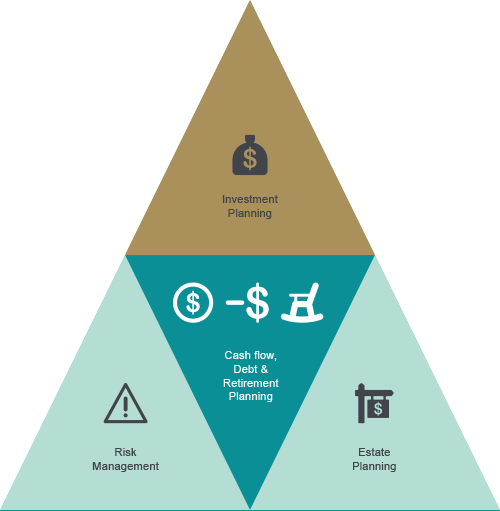Investment Planning
“If you would be wealthy, think of saving as well as getting”. Benjamin Franklin.
There are many different theories on how to invest and what to invest in. Beware of the theories with no basis. Having an understanding of how money works is as crucial as keeping yourself in good health. Allow us to guide you.
Our Investment Philosophy
At G3 we know that to achieve your longer term financial goals, you need a plan and a strategy.
As part of your wider financial planning goals, investing for the future is a key part of ensuring you accumulate the wealth you need in order to live the life you choose. We take this process very seriously, and look to proven strategies that work.

We don’t believe anyone has a crystal ball when it comes to investing, regardless of experience in the financial industry. Attempting to predict the future in terms of when and where to invest has been proven not to add any value to investors, this only adds costs, affects returns, reduces diversification and ultimately increases risk to the investor. We therefore prefer to adhere to proven ways to invest our clients’ money.
Science has led to tremendous advances in areas from lifesaving medical breakthroughs to immediate communications. However, in the past, science has provided little influence in investing. Instead of keeping pace with advancements in modern portfolio theory and historical and statistical evidence, investors and money managers have relied on conventional wisdom and flawed assumptions. How can investors sort through the vast amount of available data to maximise after-tax returns and minimise risk?When it comes to investing, we help our clients focus on what they can control. Too many investors focus on the markets, the economy, fund manager ratings, the performance of a particular security or strategy and so often overlook fundamental principles. The significance of a portfolio asset allocation, and the proportions of its total assets invested in different asset classes should not be underrated. Research highlights the crucial role of a portfolio’s long term asset allocation in determining an investor’s success.
How can we assist?
We understand the advancements in investing, share this knowledge with clients and implement portfolios structured around the evidence to enable our clients to focus on achieving the outcomes they want.
We educate clients, collaborate with them, show them how they can achieve results, listen to them, understand their needs, help them avoid potential pitfalls and assist them with crafting solutions that work. We share our knowledge with investors so that our advice makes sense and offers them optimal investment outcomes based on compelling scientific evidence.